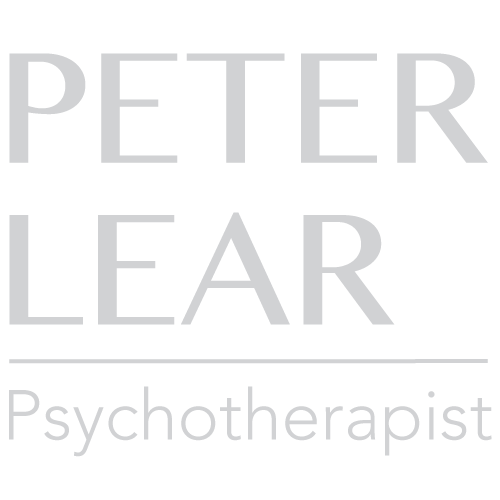Personal
I became a therapist because I’ve experienced the transformational power of therapy. I saw my first therapist in high school, who helped immensely. Around the same time, I took my first psychology class, which I found fascinating. My parents called me the “kid psychologist” because I have a gift for insight into the human condition.
I was born in Los Angeles, moved to New York City, and was raised in Chicago’s suburbs. I attended Pitzer College in Claremont, CA, where I studied psychology and art. After college, I moved to Chicago and Milwaukee to study music theory at the Milwaukee Conservatory of Music. Soon after I began writing, performing, and recording original rock music in Chicago. I reconnected to my passion for the human sciences after working through some personal issues in therapy. I have also worked as an investigative journalist and a sous chef before my career as a psychotherapist.
Professional
I received my master’s degree from Loyola University of Chicago in 2001, specializing in family therapy and psychopathology. In my first year of work experience, I treated couples and in another location, children in a school setting. Later, I worked in a clinic specializing in cognitive behavioral techniques for adults. Three years later, I became licensed and began working with families of children with developmental delays.
From 2007-09 I worked in community mental health, where I treated children, families, and adults with a range of mental health issues. At this time I also developed a dual-diagnosis group for adults with addiction and mental health issues.
In 2008 I started a private psychotherapeutic practice where I successfully treated adults and teens. Also, at this time I created an addiction management group for young adults whose addictions had prevented them from completing 4-year college.
I also completed a 200-hour yoga teacher training program and taught part-time. I utilize yogic and pranayama techniques to facilitate healing where appropriate.
Modalities
Peter Lear has completed specialized post-graduate training in several treatment modalities. For more information, click on the header links.
Eye Movement Desensitization and Reprocessing (EMDR) – Eye Movement Desensitization and Reprocessing is an integrative psychotherapy approach that has been extensively researched and proven effective for the treatment of trauma. It has also been found to be effective in the treatment of panic attacks, disturbing memories, phobias, pain disorders, performance anxiety, stress reduction, addictions, sexual and/or physical abuse.
Psychodynamic Insight Therapy – Insight treatment’s primary focus is to reveal the unconscious content of a person’s psyche in order to bring relief from behavior and thought patterns that are harmful to one’s functioning. In this way, it is similar to psychoanalysis, but psychodynamic therapy tends to be briefer and less intensive than psychoanalysis. It also relies on the interpersonal relationship between client and therapist as a vehicle for growth. This form of therapy tends to be more eclectic, taking techniques from a variety of sources rather than relying on a single intervention.
Psycho/Physical Therapy (Somatic Psychology) – PPT, developed by Bill Bowen, is a treatment modality that synthesizes both psychological and body therapy concepts and techniques into one simultaneous process. One’s physical, mental, and spiritual issues are seen as parts of a complex interactive system where all parts are inseparable from the whole.
Family Systems Therapy – Family Systems Therapy is a branch of psychotherapy that tends to look at the entire family’s functioning instead of seeing one family member as having “the issue”. It tends to view change in terms of the quality of the family members’ relationships.
Mindfulness-Based Approaches – Mindfulness is designed to focus one’s attention on the present experience in a way that is non-judgmental. Mindfulness has its roots in Eastern techniques, in particular, Buddhist meditation. The practice requires that one observe and accept the present situation exactly as it is, regardless of whether that is good or bad. Mindfulness-based approaches and contemplative approaches are becoming widely accepted methods for relieving symptoms related to many psychological issues and can be applied across many different population segments
Yoga – Yoga has existed for approximately 5000 years and is a commonly known term for mental, physical, and spiritual practices that enable wellness. Yoga is a system of wellness that sees little or no separation between the mind and body. Certain yoga poses are utilized to target particular body systems that may be out-of-balance (e.g. immune, endocrine, digestive). Peter is a Yoga Alliance 200-hour Certified Teacher, a regular practitioner since 1998, and a part-time yoga teacher since 2007.
Biopsychosocial Assessment – A bio-psycho-social assessment is an in-depth process that examines your strengths, looks at your family history, examines current functioning, takes into account medical issues, and creates a comprehensive treatment plan that can be objectively monitored. This may include evaluation for a mental health diagnosis. Peter has several years of specialization in clinical assessment.
Licensure
Peter attained LCSW licensure in 2005. An LCSW is someone who has graduated from an accredited social work master’s program, completed supervised clinical hours (3,360 hours in Colorado), and passed the ASWB’s clinical licensure exam. This is the highest level of social work licensure a person can obtain. LCSWs are able to practice clinical social work, such as psychotherapy, diagnosis, treatment recommendations, supervision, crisis intervention, and other clinical mental health roles.
Peter attained his LAC licensure in 2020. LAC (licensed addiction counselor) is the highest form of addiction licensure in Colorado that begins with CACI, CACII, CACIII. One must possess a master’s or doctoral degree in behavioral science with a completion of 3000 hours of supervised clinical work experience in a setting that actively treats substance and process use disorders. It is also required that a LAC has completed approximately 200 hours of post-graduate course work in addiction science and treatment, passed the MAC exam and the Colorado jurisprudence exam.
©2024 peterlear.net || site design ssstudio.us

